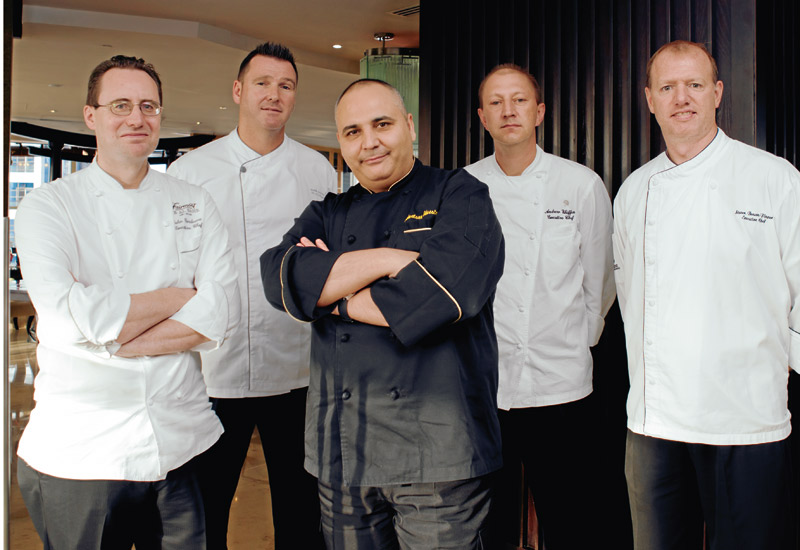What sort of things did you have to implement to achieve this?
MP: Because 70% of our team were born after 1981, they want to be heard, so I asked what was annoying them. Anyone could give feedback and they came back with their five top peeves, and from that data I was able to find out the main reasons why people were leaving and number one was the uniform.
Remember the age you are dealing with. You are not really classed as a chef, sure your title is chef, but you are a leader of the team, a leader within the organisation and you have to build that reputation with your team so it’s changing.

| Advertisement |
I think our job changes all the time, so to answer your first question I don’t think it’s the same as when I was first an executive chef about 15 years ago — it’s changed dramatically.
AW: That’s one of the reasons we all do it, because it’s not a nine-to-five office job or a desk job, every day something new comes up.
MP: It’s a lifestyle not a job, not even a career, it’s your life. Twenty eight years I’ve been doing this by January next year, what a great journey so far, you meet some great characters out there, you get to work with some amazing guys, this industry is as big as a pin head.
There’s no six degrees of separation, it’s about half a degree of separation, because we have all worked with someone somewhere, or know someone and when you are at our age you probably know someone at a senior level doing something.
JC: It’s unfortunate that the youngsters don’t realise that and I think one of the biggest challenges is nobody calls for a reference. One thing I do, any employee I hire, I ensure we do a minimum of two references and then phone the chef and speak to him. And then you can have that conversation. I have had people say ‘he’s good but I don’t think he is ready’ and we leave well alone.
Is there anything positive about this new generation of workers?
ALL: Absolutely.
MP: When they create a good mouse trap there’s a smarter mouse and that’s where the adaptability comes in. Every time you learn something you put it in your tool box and remember it , because you never know you might need to pull it out one day.
I hav e 45 chef de cuisines, so when I get a management team together and we start talking about the challenges and the problems, that’s where I need to pull out these experiences that they’ve had and put it into a context that the team can understand — that’s where cultural sensitivity comes in.
SS: And you do an engagement survey and you find that different cultures have different needs or believe different things. The people that complain about the uniform is one culture and food from the canteen is the biggest problem with another.
MP: It’s an area of our industry that as leaders we don’t spend enough time on. We talk the talk about people, but what do we do about it? Product okay, that’s what we do, it’s food.
When it comes to numbers we can tell them all, process yes, logistics, but when it comes down to emotional leadership, it comes to the staffing and culturally understanding what we are doing, this is an area where I think we can make a difference in building Dubai into a number one destination.









 Search our database of more than 2,700 industry companies
Search our database of more than 2,700 industry companies










Aug 4, 2011 , United Arab Emirates
Just one example of recognition of the chefs role came to light in the 1990's when a very large hotel company changed their Assistant Manager policy and decided to recruit their Hotel Managers from Heads of Department at operations level, (namely Head chefs, Housekeeping, Restaurant, Reception). ...